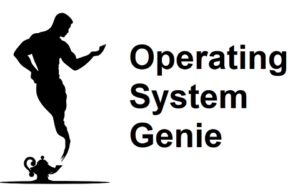The Intel Core i7 is one of the most popular, and highly rated CPUs on the market today. Microsoft has added some unique CPU requirements for Windows 11, and today I will explain if the Intel Core i7 processor (CPU), will run Windows 11.
Overall, Windows 11 will run on an i7. But, only i7’s that are 8th generation or newer are supported by Microsoft. They also have TPM 2.0, or higher, which is required to utilize the enhanced security features added to Windows 11.
Another big factor, though, but in practice not a major issue, is the crash rate of unsupported i7’s. Below, I will explain why it is that Windows 11 only supports i7’s that are 8th generation or newer, and if there are any downsides to installing Windows 11 on an Intel Core i7 processor (CPU), that is not supported by Microsoft to run Windows 11.
What Happens if You Run Windows 11 on an Unsupported i7

Microsoft does not support some i7 processors that are incredibly fast, and perform very well when running Windows 11.
So, here is a full rundown of what happens if you install and run Windows 11 on an unsupported Intel Core i7, and why or why you shouldn’t do it.
On average, it will crash 0.16% of the time on unsupported i7’s. On supported i7’s it will crash 0.08% of the time. Almost all unsupported i7 CPUs also won’t utilize the enhanced security features added to Windows 11, as these require TPM 2.0 or higher, which unsupported i7 CPUs don’t have.
There are a few exceptions, and some i7’s that are older than an 8th generation do have TPM 2.0, and therefore are supported by Microsoft and will have the enhanced security features.
How to know what generation your i7 is
This can be checked by looking up the specs of your specific i7 model. As you may know, Intel conveniently names their CPUs (processors).
A 4th generation i7 has a model number that starts with a 4. For example, i7-4XXX. And a 5th generation i7 has a model number that starts with a 5. For example, i7-5XXX.
It’s very easy to see what model number i7 you have by looking up the details by right clicking on ‘This PC’ in the Windows start menu, and selecting ‘Properties’. This will open a new Windows and list all of the hardware, including what CPU you have.
Microsoft supports Intel i7 CPUs that are the following generation:
- i7 – 7th generation (only 3 models, 7800X, 7820HQ, 7820X)
- i7 – 8th generation
- i7 – 9th generation
- i7 – 10th generation
- i7 – 11th generation
- i7 – 12th generation
- i7 – 13th generation
Only one of the three 7th generation i7’s that are supported for Windows 11, the 7820HQ, also have specific requirements such as where it was made. If you have one of these i7’s refer to the official Microsoft website to see what these are, and if your 7th gen i7 is supported.
Why Only Some Intel Core i7 Processors Are Supported on Windows 11
There are two reasons why only some Intel Core i7 processors are supported by Microsoft. These are:
- They have TPM 2.0
- They have less crashes
During the initial launch and testing of Windows 11, Microsoft gathered a bunch of data from people using it. It was found that people running any Intel Core i-series processor below an 8th generation had significantly more crashes.
As you may know, a crash is where the entire operating system freezes, or one of the apps freezes. Either, the computer needed to be restarted, or a specific app needed to be force closed using the Task Manager and opened again.
However, it was interesting to note that although i7 CPUs that were older than 8th generation had significantly more crashes, the overall crash rate was very very small. Here’s a summary:
- i7’s below an 8th generation – 0.16% crash rate
- i7’s 8th generation and above – 0.08% crash rate
So, if you use a computer with an i7 that is below an 8th generation for an hour. Out of the 1000 times you use it, it will crash 1 to 2 times. Compared to only 1 time for i7’s that are supported by Microsoft.
Because this difference is so small, the main consideration is more likely the lack of TPM 2.0. And is Microsoft’s main concern and why they only support i7’s that have this capability.
Why Your i7 Can’t Run on Windows 11
Some i7’s have very good specs, but if you’ve checked whether you can use them for Windows 11, and it states that they are not supported, it’s a bit confusing why. So, here is why your i7 can’t run on Windows 11.
Overall, it does not support TPM 2.0, which is required to utilize the enhanced security features that were added to Windows 11. All i7’s can install and run Windows 11, the difference is only 8th generation or newer are supported by Microsoft, and they will help you fix any issues you have with it.
The question about can an Intel Core i7 processor run Windows 11, is yes but you can’t get support from Microsoft when you have issues with Windows 11. While problems with Windows aren’t too common, and you can find a solution online, having the expert help of Microsoft is very helpful.
In general, it’s perfectly fine to run Windows 11 on an i7 that is not supported, it just won’t be as secure as supported i7 processors. The reason is they don’t have TPM 2.0 or higher which is needed to use the special enhanced security features that are included in Windows 11. Therefore, you are more at risk of viruses and malware.
What Gen i7’s Can You Run Windows 11 On
Intel currently sells 9 different i7 generation CPUs, generation 4 through 13. But, Windows has stated that only certain generation Intel i-series processors are supported by Microsoft. Below is what i7’s can run Windows 11.
In general, all generation i7’s can run Windows 11. But, only 8th generation or newer i7’s, and three specific i7 7th generation CPUs are supported by Microsoft. So, if you do have issues with Windows 11, Microsoft will not provide support for it.
The reason is i7’s that are older than 8th generation don’t have a technology called TPM 2.0 or higher. Such as, TPM 2.1, as a result, they are less secure, and can’t run the enhanced security features added to Windows 11.
